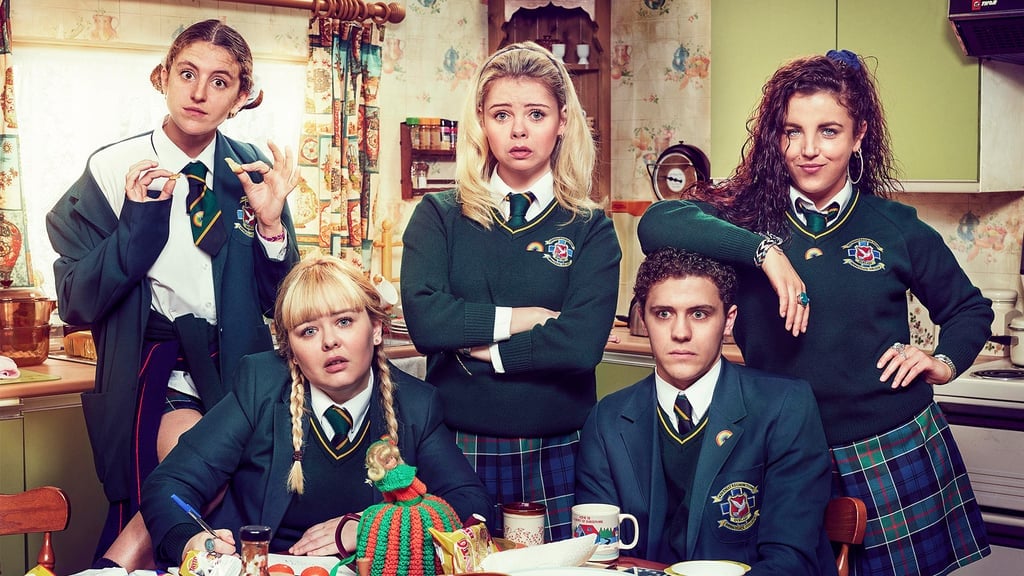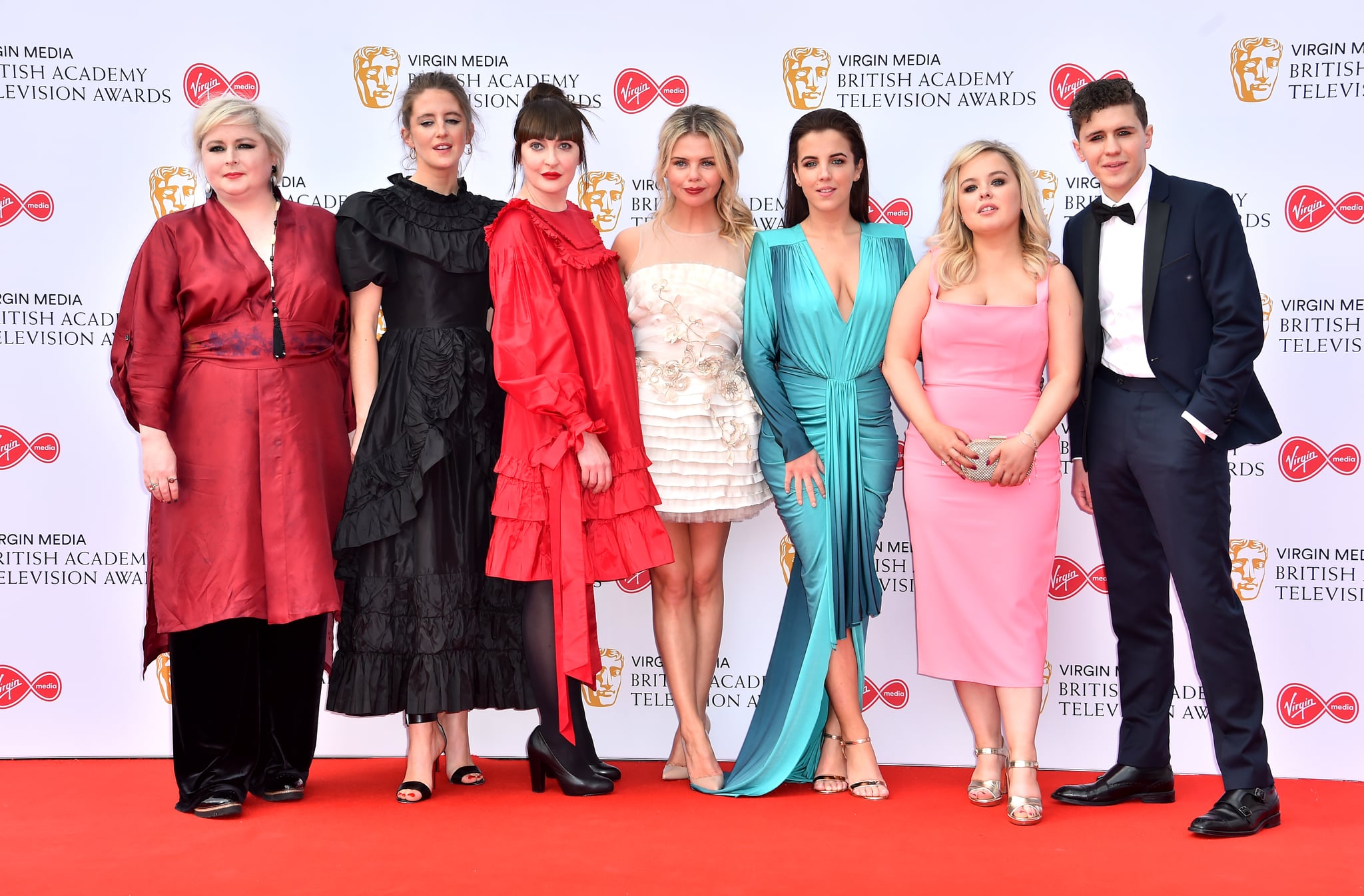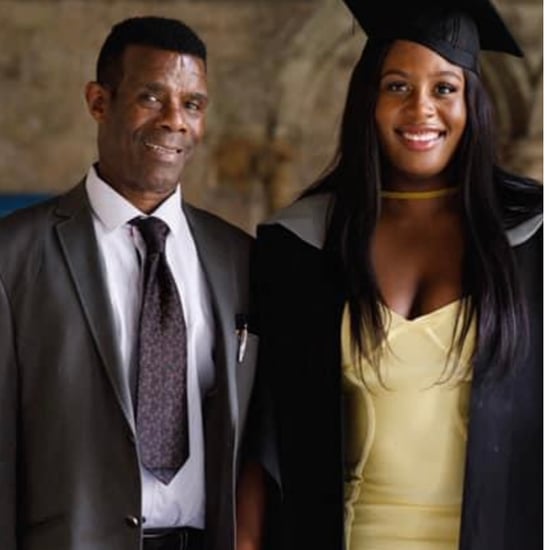Derry Girls Gave Me the LGBTQ+ Representation I Never Had
As a Bisexual Woman, "Derry Girls" Gave Me the LGBTQ+ Representation I Never Had

Lisa McGee's "Derry Girls" has quickly become a cult classic. Documenting the lives of four Catholic girls and a wee English fella coming of age in Derry, Northern Ireland, amidst the height of the Troubles — it combines humour with stark, albeit subtle political commentary. The most iconic "Derry Girls" scenes have been obsessively re-created on TikTok, and fans have comically caught onto the classic Derry-isms "catch yourself on," "baller," and "ride." As the final season premieres, it is a bittersweet moment of reflection for many.
I wasn't expecting to find a home in "Derry Girls". I started watching after I learned that the beloved Clare Devlin, gracefully portrayed by Nicola Coughlan, comes out as a lesbian. The hysteria online was huge, and I wanted to be a part of it. I wondered whether her identity would be gracefully handled or whether it would succumb to stereotypes so embedded within the media landscape. Queer women characters, lesbians in particular, are often subjected to sad, all-encompassing trauma or killed off completely. But this wasn't the case with Clare, and I was pleasantly surprised.
"'Derry Girls' could've taken the obvious stance here, but instead, it refuses to succumb to stereotypes surrounding LGBTQ+ identities and Catholicism."
I came out as bisexual at 17, after years of confusion and deliberation. For a while, I zigzagged over my sexuality: I knew that I liked boys, but I liked girls, too. Was I straight? Was I a lesbian? Was I a lesbian experiencing compulsory heterosexuality? I had no idea. I knew one lesbian at my all-girls school, and I was barely acquainted with the word "bisexual." I grew up in the shadow of Section 28, a clause that prohibited the "promotion of homosexuality" by local authorities, including councils and schools. Deeply homophobic and designed to scare LGBTQ+ teachers and pupils alike into submission, it was introduced under Margaret Thatcher's Conservative government in 1988. Literature narrating LGBTQ+ histories, however subtle, was removed from library bookshelves, and teachers were instructed not to approach, reference, or answer questions about LGBTQ+ issues. Queer teachers lived in fear of losing their jobs, and LGBTQ+ students, like me, grew up confused and somewhat displaced. It was censorship at its finest.
Though it was eventually repealed by Tony Blair's administration in September 2003, the legacy of Section 28 remained, and to an extent, it still does. I started school in September 2002, one year before the fact. As a child, I was totally unaware of this legal censorship, and it would be many years before I uncovered and reclaimed my own sexuality. Throughout my education, teachers were ill-equipped to teach on LGBTQ+ issues: the law might have changed, but the structures in place remained outdated in that teachers had not been trained on how to approach LGBTQ+ issues, both from an educational and pastoral perspective. In the playground, the sporty girls were called "lesbians" and the effeminate boys "gay", and my teachers turned a blind eye. The implications of a law in place for 15 years don't disappear overnight: there was a sentiment that brushing these microaggressions aside was the proper thing to do, a complex combination of the British stiff upper lip and the confusion of what was and what wasn't appropriate to discipline.

Though I came of age in the 2000s in England and Clare Devlin in the 1990s in Northern Ireland, I feel a unity with her character. Coming out as a lesbian in series one, Clare's trajectory towards understanding her sexuality was never simple. As best friend Erin Quinn takes on the editorship of the school newspaper, she decides to publish an anonymous letter sent in from a student confessing that she is a lesbian. In her mission to do good and platform the "wee lesbian"'s touching story, Erin is permitted a unique sense of authority, but little does she know that her closeted best friend Clare submitted the letter.
This is where "Derry Girls" breaks the glass ceiling. Attending an all-girls Catholic school led by the fiercely matriarchal, albeit hilarious, Sister Michael, it would've been all too easy to dismiss Clare's story. Head prefect and all-around goody two shoes Jenny Joyce is outraged by this scandalous platforming of homosexuality and approaches Sister Michael in the corridor. "Put a stop to it!" she demands, surrounded by excitable girls consumed by pages and pages of newspapers spread across the halls. Instead, the headmistress shrugs and turns her back, taking a laissez-faire approach. "Derry Girls" could've taken the obvious stance here, but instead, it refuses to succumb to stereotypes surrounding LGBTQ+ identities and Catholicism.
"'Derry Girls' excels at acknowledging the political, social, and religious contexts of Clare's coming out."
Of course, Clare and Erin's relationship endures its difficulties after Clare comes out. "I'm the wee lesbian!" she confesses. "Don't blame me. Don't come out – go back in!" exclaims Erin, struggling to understand why Clare never revealed this to her, feeling somewhat culpable for having revealed this anonymous story in the school paper. The pair spend a period estranged, as Erin feels betrayed by Clare's silence and Clare feels betrayed by Erin's shock. But in the end, they're united by their enduring friendship, with all problematic stereotypes left behind, besides Jenny's negativity and murmurs in the corridor from miseducated school students. "Derry Girls" excels at acknowledging the political, social, and religious contexts of Clare's coming out, but the lasting message is this: friendship conquers all, and these girls – and the wee English fella's – friendships, are rock solid.
All in all, "Derry Girls" approached Clare's story with authenticity, warm humour, and most importantly, love. This feels like a very "real" coming out: it's not plain sailing, and it's tinged with the complication that reactions from family and friends bring. Above all: it's not traumatic. By series two, Clare's sexuality becomes part of her, but it's not the dominant narrative.
Too often, LGBTQ+ stories are plugged to fill diversity quotas, with the sexuality of the person in question overcompensating as being the most important element about them. What I most respect about "Derry Girls" is the construction of Clare's character — not just as a lesbian, but as a human being. In her character, we witness more about her fraught anxiety, her unwillingness to break the rules, and her enduring friendships than we witness about her sexuality. It's part of her, but it's not all there is to her. In the words of the iconic Aunt Sarah, "It's wall to wall lesbians out there," and I wouldn't have it any other way.






